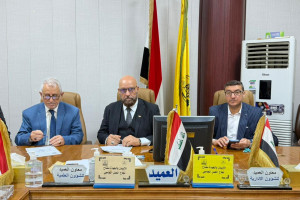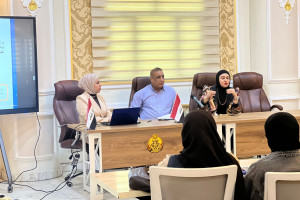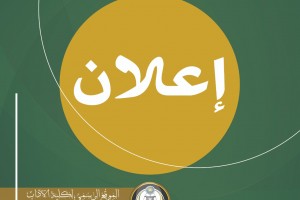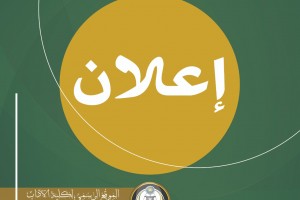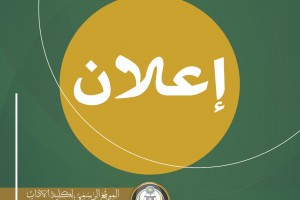
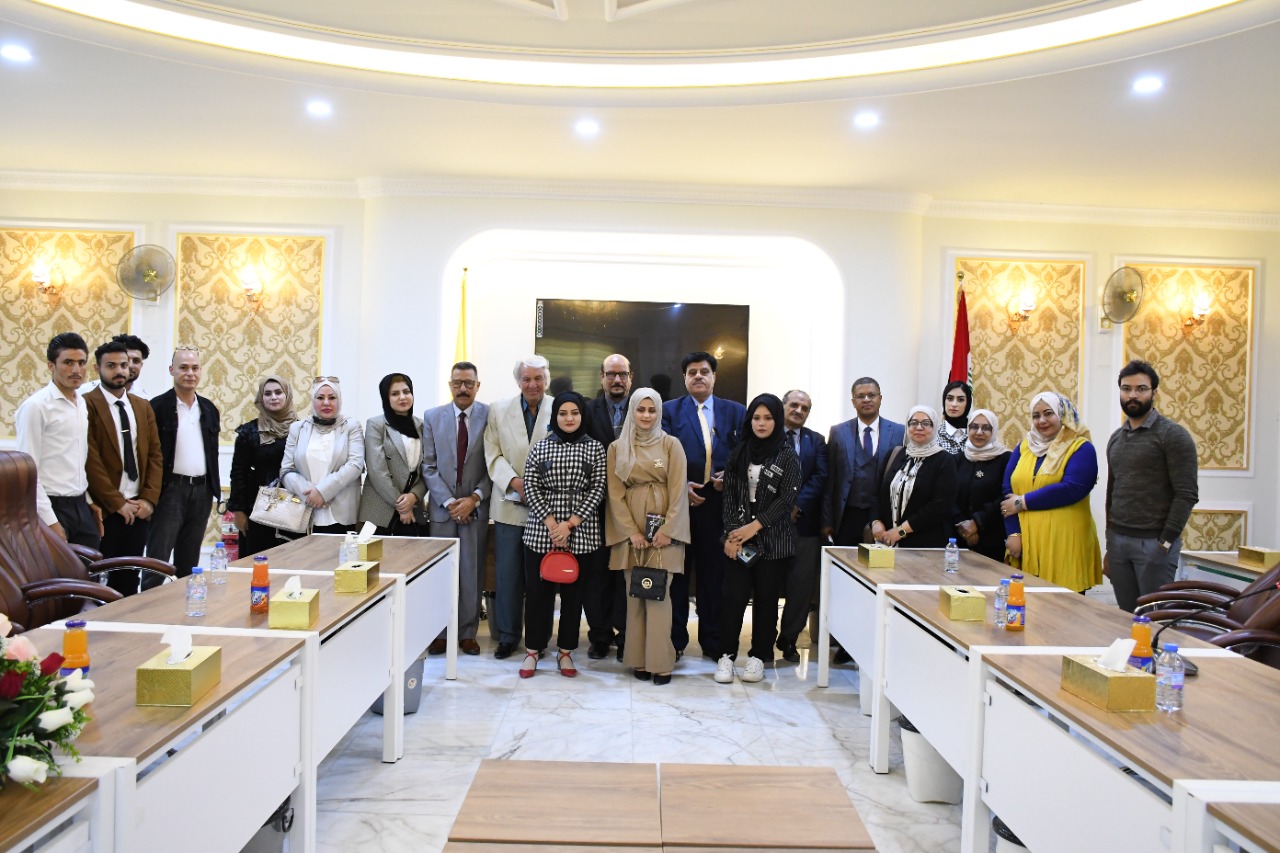
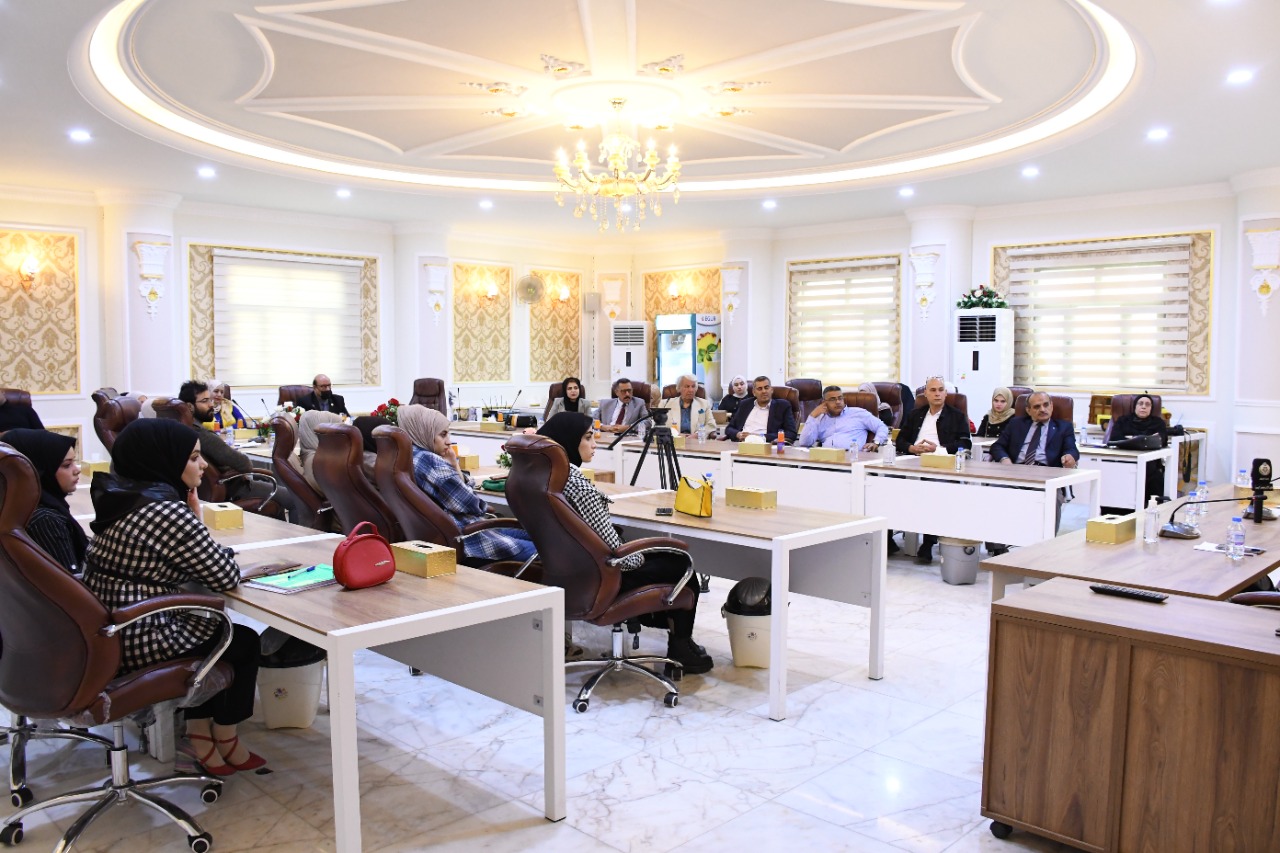
The Department of History at the College of Arts/the University of Basrah organized a symposium entitled (The Role of the Historical Bloc in Reform and Change Making).
The symposium, which was presented by Dr. Mustafa Jawad Al-Amara, Executive Director of the Arab Center for Training and Career Development in London, aimed to introduce the historical bloc that had its first appearance in 1926 by the Italian thinker Antonio Gramsci, which had a major role in bringing down the Italian leader Mussolini.
He touched on the importance of harnessing the concept of the historical bloc for change in an orderly and deliberate way to achieve a better future.
The workshop included discussing the concept of the historical bloc, which is a coalition between intellectual, elite, and cultural movements, and community and union leaders that seek peaceful change and work together for the transition to a rational system of governance. This bloc consists of the organic intellectual who transforms his culture into community development projects that can solve the crisis of the state and society.
The symposium recommended:
1. The need for the cultural elites to unite to achieve reform.
2. The necessity of training young people, developing their skills, and instilling hope in them to achieve the desired reform.
3. The necessity for all classes and groups of society to come together to achieve the concept of the historical bloc that takes upon itself the implementation of the reform project.

